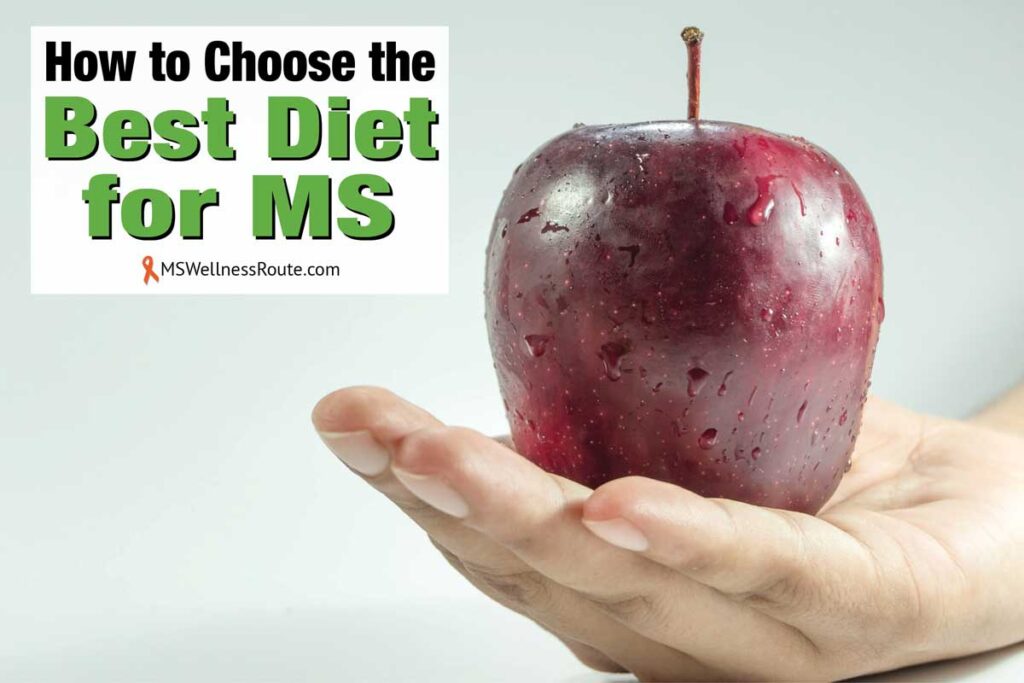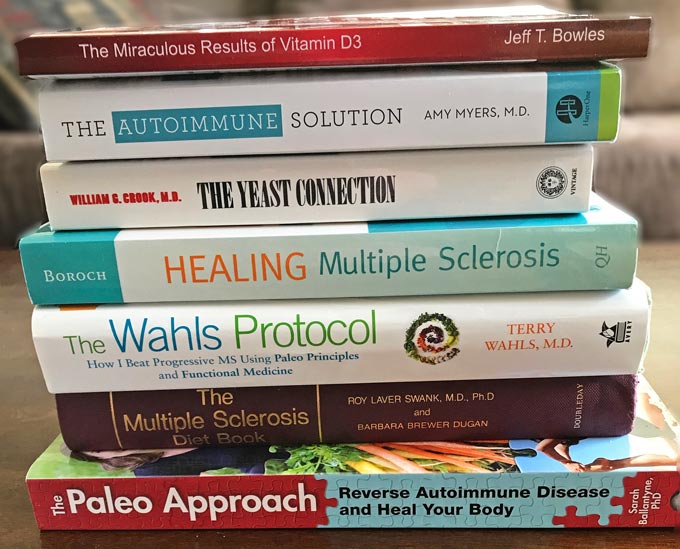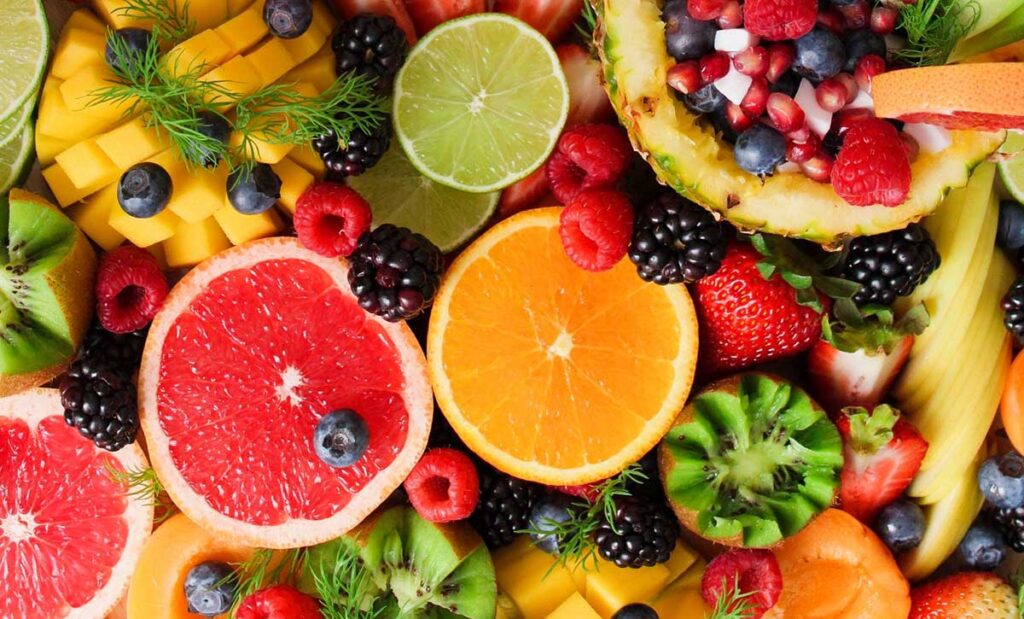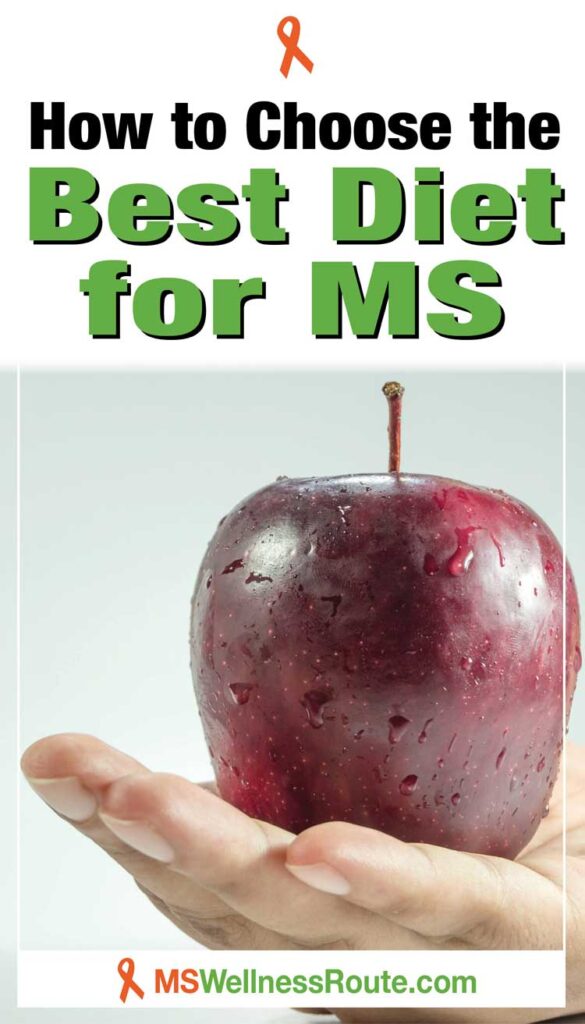
Multiple sclerosis (MS) is an inflammatory demyelinating disease of the central nervous system. Studies show eating healthy with lots of fruits and vegetables benefits MS patients. But, which is the best diet for MS?
The standard American diet (SAD) is unhealthy and it is making us overweight and sick. It consists of added sugars, calories, excess sodium, refined grains, and trans fats. The Centers for Disease Control (CDC) says, in 2020, 73.6% of adults in the U.S. are overweight. Of those, 41.9% are obese.
Diet along with a sedentary lifestyle has led Americans to:
- Cardiovascular diseases
- Certain types of cancer
- Chronic diseases
- Fatty liver disease
- Hypertension
- Metabolic syndrome
- Osteoarthritis
- Osteoporosis and osteopenia
- Overweight and obesity
- Pregnancy complications
- Sleep apnea
- Stroke
- Type 2 diabetes
When I was young it was rare to see an obese kid, today it’s common. School cafeterias are filled with junk food and parents don’t know how to prepare real food. It’s not uncommon for Americans to not eat one piece of fruit or a vegetable for the entire day.
Unfortunately, neurologists are lacking education when it comes to neurological diseases. Until nutrition is part of a doctor’s education it’s up to the patient to find what’s best.
There are many diets for people with MS which makes it hard to know which one is right. If you were to do an internet search it becomes even more confusing. One thing every diet promotes and that’s eating more fruits and vegetables.
The standard American diet is low in fruits and vegetables. Which leads to chronic diseases such as heart disease, cancer, and autoimmune diseases. Eating a healthy diet full of fruits and vegetables is essential to staying healthy.
Which diet is best for MS?

There are many popular diets for MS but not one benefits everyone. People with MS tend to do better when they are eating a diet high in fruits and vegetables. No matter what diet you choose focus on eating lots of healing fruit, vegetables, and herbs.
Some of the diets that help people with MS include:
- Best Bet Diet (BBD) avoids foods that cause a leaky gut
- Intermittent fasting diet is a restrictive diet of when to eat and when to fast
- McDougall diet is a high starch, low-fat diet with no animal products including fish
- Overcoming MS diet is a plant-based diet that also includes seafood
- Swank diet is a low saturated fat
- Wahls diet is a Paleolithic-based diet with three different levels
All of these diets help with the reduction of MS symptoms. However, none of these diets work for everyone. Eating healthy, exercising, and reducing stress will give you a better quality of life.
Fruits and Vegetables

You don’t necessarily need to eat a vegetarian diet. But, lowering the amount of meat you eat will also lower your inflammation. Especially if you eat conventionally raised animals.
According to PubMed, the consumption of animal products:
“Displacing fiber, complex carbohydrates, antioxidants, and other components needed for health.”
Consuming animal products also promote unhealthy gut bacteria. Including trimethylamine N-oxide, a proinflammatory compound associated with neurological diseases. Studies found people with MS have more bad bacteria in their gut than healthy people.
“Plant-based diet is a backbone for dietary recommendations in MS patients.” – National Center for Biotechnology Information (NCBI)
Eating conventionally raised animals exposes you to:
- Cholesterol
- Estrogens
- Lactose
- Pathogenic pathogens
- Saturated fat
A plant-based diet is high in fiber and has an anti-inflammatory effect. Inflammation is what causes diseases including MS. If you do eat animal meats choose healthy ones such as:
- Lean grass-fed meats
- Pasture-raised poultry
- Wild-caught fish (except wild Atlantic salmon)
Eating a Healthy Diet

Eating healthy benefits everyone. It’s especially important for people with MS. Studies haven’t found one MS diet to be better than the others. Although, studies show that eating a healthy diet may influence the course of MS.
“Scientists emphasize that dietary recommendations are a principal part of the multifaceted therapy as the best choices for the treatment of MS because the available medicines alone have not been able to control MS progression and outcomes.” – NCBI
This quote from NCBI actually surprised me. It made me think of my neurologist who told me “diet doesn’t work.” Granted he told me this a long time ago and things have changed since then. I’m just glad I didn’t listen to him. Who knows what I’d be like today if I had listened?
Everyone with MS is different. Some have relapsing-remitting MS (RRMS) while others have progressive MS (PPMS). A friend of mine was diagnosed with MS, and within 5 years she was in a wheelchair. I tried to convince her to try eating healthy to help manage her MS, but she wasn’t interested.
I watched her go downhill rather quickly which was really sad. She eventually became bedridden and passed away. Would she have done better if she had eaten a healthy diet? There’s no way of telling but more studies are saying a healthy diet benefits people with MS.
“Some studies have shown that specific diets characterized by low fat, low calories, low protein, or rich in vegetables might regulate the immune system function and modulate the disease activity in MS patients.” – NCBI
How to Choose the Best Diet for MS

The best diet for MS is an anti-inflammatory diet adjusted to fit your needs. Some people do better eating more meat and others less meat. If you decide to include meats into your diet eat a small amount only once a day.
Fruits, vegetables, and herbs should be what you eat the most. Here are some foods you should try to eat regularly:
- Basil is an antibacterial, anti-inflammatory, and antiviral
- Cilantro helps remove heavy metals
- Dandelion greens and dandelion tea helps supports the liver
- Foods rich in vitamin C such as broccoli and citrus fruits
- Garlic is antiviral and cuts down the risk of infections
- Ginger is an antibacterial, anti-inflammatory, and antiviral
- Lemons and limes increase hydrochloric acid (HCL)
- Pumpkin seeds are high in B-complex, magnesium, omega-3 fatty acids, vitamin E, zinc
- Turmeric is a powerful antioxidant, anti-inflammatory, and antiviral
- Wild blueberries are high in antioxidants and benefit brain health
It is important to eat a wide range of healthy food to get the most nutrients. Help your liver detox by drinking plenty of clean filtered water. Antiviral supplements will also help since the Epstein-Barr virus is the main cause of MS.
To learn more about EBV read: Epstein-Barr Virus Triggers MS
Antiviral supplements include:
Don’t get discouraged If you don’t see results right away! Healing the central nervous system takes time, it’s one of the slowest systems to heal.
Free Wellness Library!
Subscribe for free and I’ll send you the password to my secret library filled with many printables for your wellness journey.
Want to remember this health tip? Pin it to your Pinterest board!

Resources:
https://www.ncbi.nlm.nih.gov/pmc/articles/PMC9527864/#!po=21.1538
https://pubmed.ncbi.nlm.nih.gov/35989054/
https://pubmed.ncbi.nlm.nih.gov/32889521/
What is the best diet for MS?





